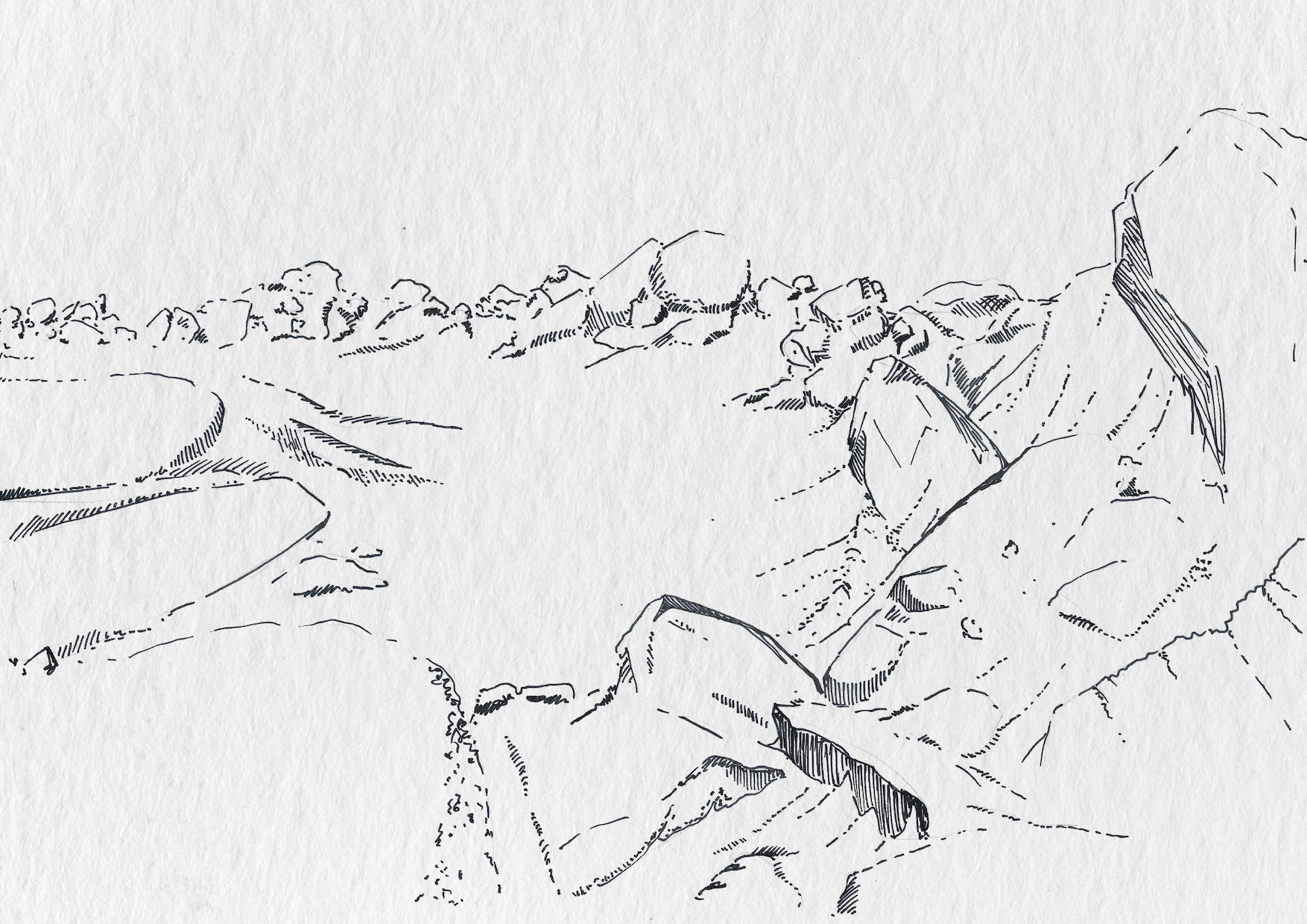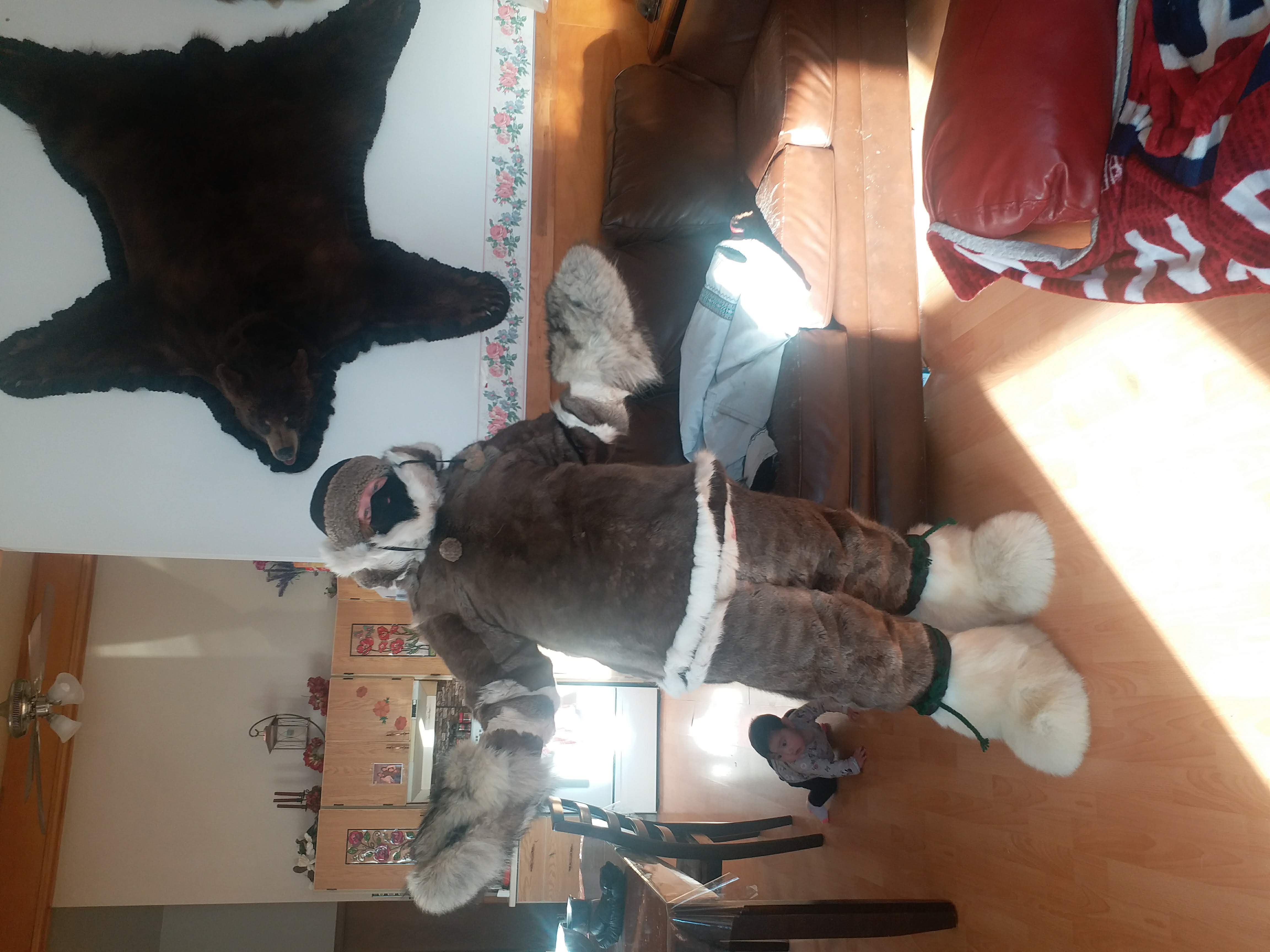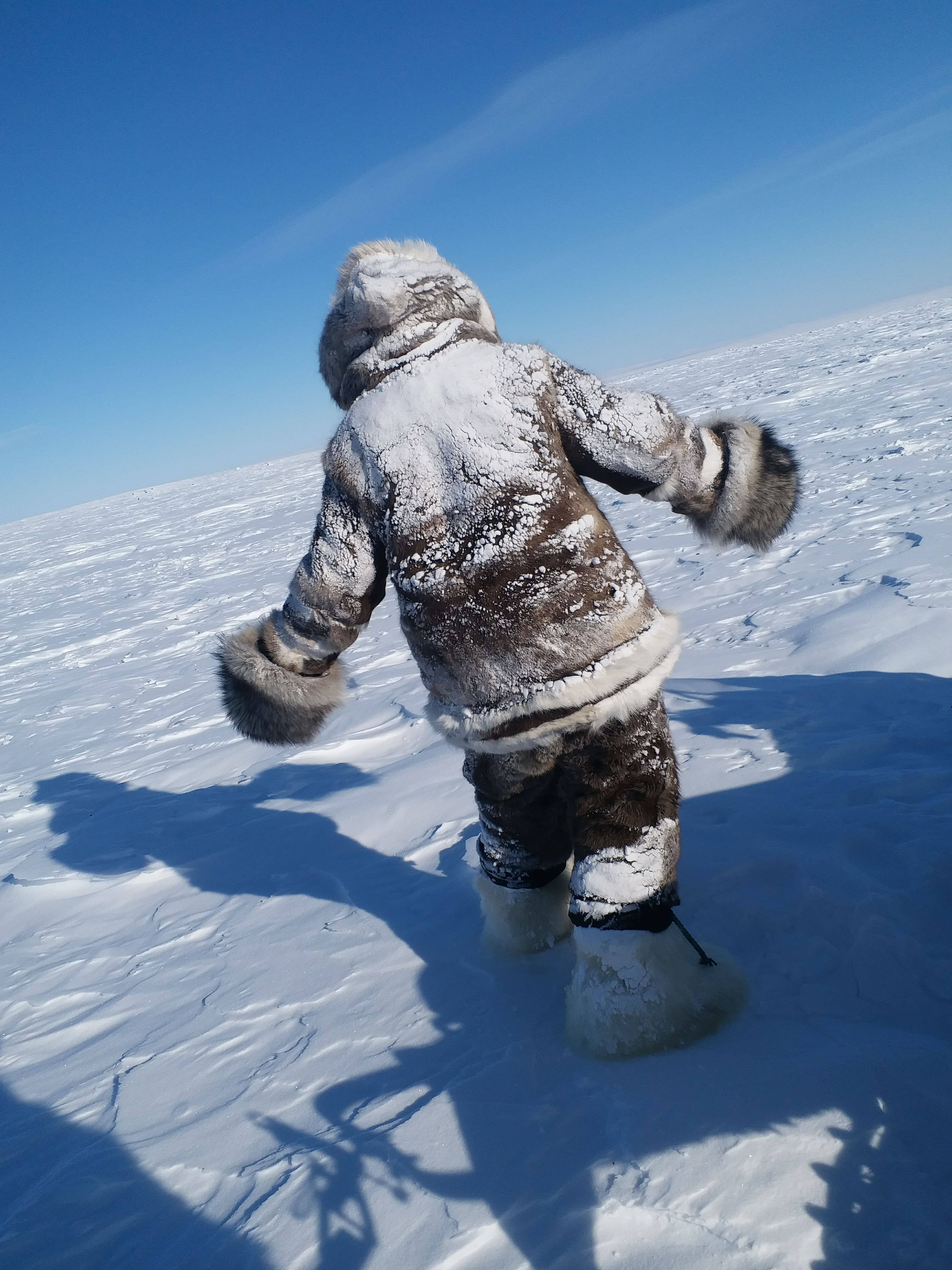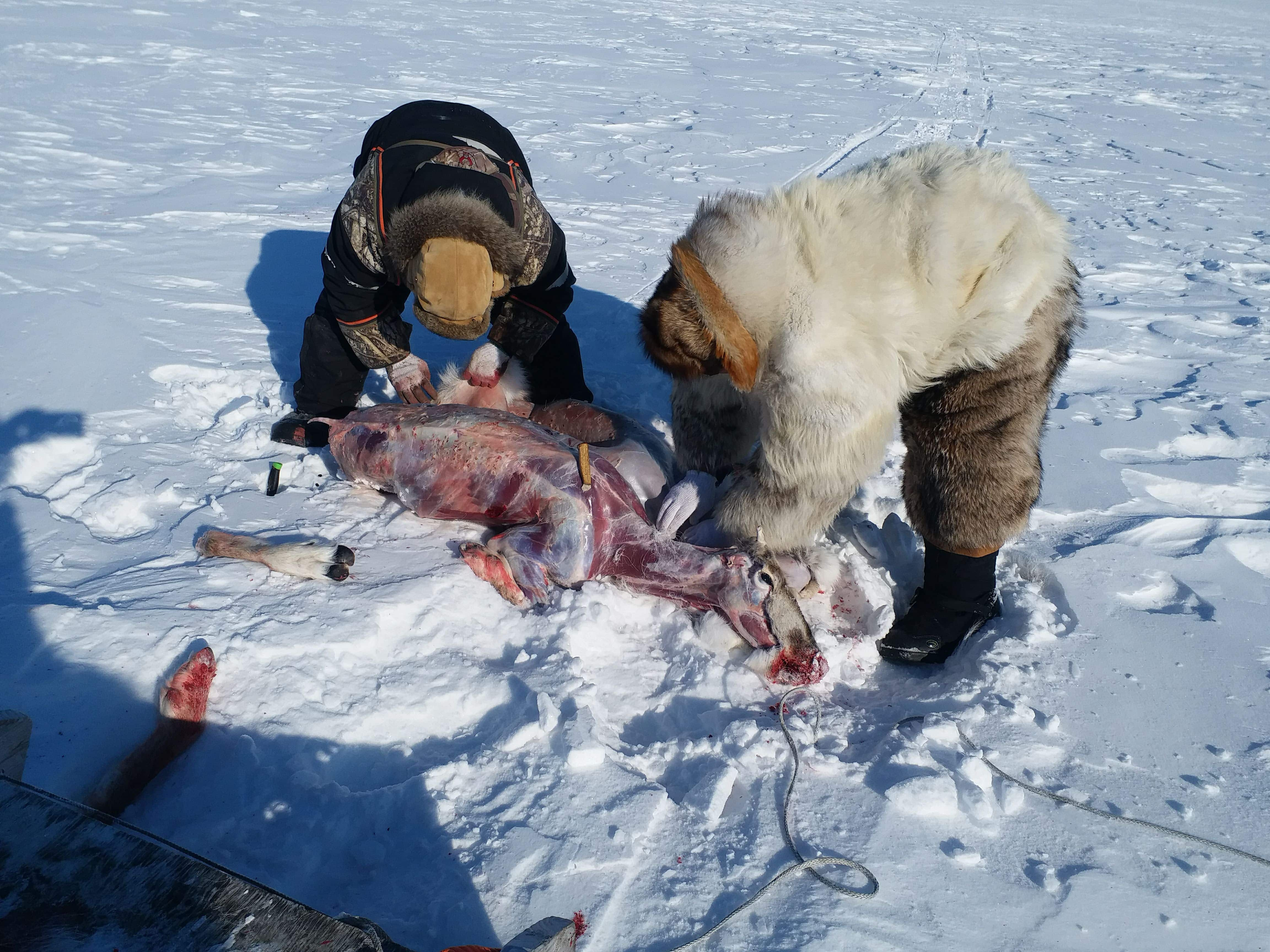Caribou Hunt: Difference between revisions
No edit summary |
|||
| Line 13: | Line 13: | ||
The choices made in terms of passing by multiple herds to reach seemingly more suitable areas for hunting Caribou, the procedures of tracking footprints, choosing which Caribou to shoot, the obvious skills in terms of skinning and stripping the Caribou, once shot, and choosing what to take and what to leave, all spoke to dimension of IQ that seemed to be missing from the TEK workshops conducted in Gjoa Haven in 2019. | The choices made in terms of passing by multiple herds to reach seemingly more suitable areas for hunting Caribou, the procedures of tracking footprints, choosing which Caribou to shoot, the obvious skills in terms of skinning and stripping the Caribou, once shot, and choosing what to take and what to leave, all spoke to dimension of IQ that seemed to be missing from the TEK workshops conducted in Gjoa Haven in 2019. | ||
[[File:Parka with snow.jpg|thumb|After several hours on the back of a skidoo (Photograph by | [[File:Parka with snow.jpg|thumb|After several hours on the back of a skidoo (Photograph by Leonard Netser, 2020)]] | ||
[[File:Cleaning caribou.jpg|thumb|Leonard and Troy skinning and stripping a Caribou]] | [[File:Cleaning caribou.jpg|thumb|Leonard and Troy skinning and stripping a Caribou]] | ||
Revision as of 16:17, 18 July 2025

On March 23rd, 2020, Leonard invited me along on a Caribou hunting trip with his son. I was dressed in a Caribou skin parka and pants, wolf-fur mitts, and polar bear fur Mukluks (boots) to remain comfortable during the 6 hour, -58 windchill hunting trip.

Introductions
This hunting trip significantly influenced how the rest of my PhD-research developed. It was my first on-the-land experience in Inuit Nunangat, and my first exposure to hunting.
As a visitor, and newly exposed to these circumstances, I was struck by the process of decision-making at multiple moments during the hunt.
The choices made in terms of passing by multiple herds to reach seemingly more suitable areas for hunting Caribou, the procedures of tracking footprints, choosing which Caribou to shoot, the obvious skills in terms of skinning and stripping the Caribou, once shot, and choosing what to take and what to leave, all spoke to dimension of IQ that seemed to be missing from the TEK workshops conducted in Gjoa Haven in 2019.


Painting Cabin
As the week progressed, and I was still waiting for the weather to turn so that I could fly back home, Leonard and his family made sure I was comfortable and had company.
As I tried to make myself useful in a way that aligned more with my own skills, I helped Leonard and his grandson paint the inside of a cabin that was in the preparatory stages of being pulled out on the land later that season, and baked a cake.
Drinking Tea
In total I would only spend 5 days in Coral Harbour that first trip. Much of that time was spent drinking tea with Leonard while we watched the world respond to the Covid-19 pandemic on our phones. Apart from a lack of toilet paper and hand-sanitizer, Coral Harbour seemed shielded from the rest of the world during those early days.
It allowed for an experience that thoroughly impacted my research approach to Inuit Qaujimajatuqangit and the land.
